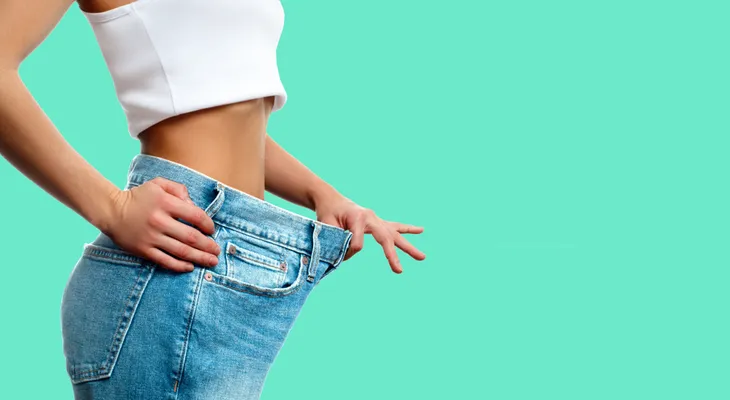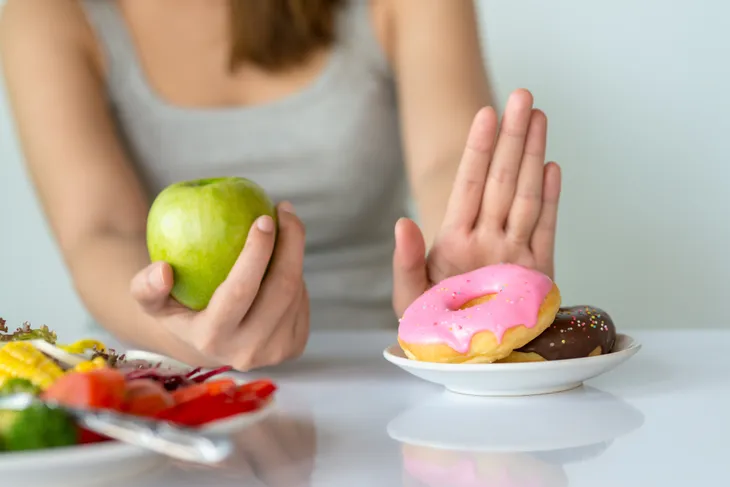Deciding to lose weight is the first step in your weight loss journey but what comes next? Should you try the keto diet, Mediterranean diet, or paleo diet? This barely scratches the surface when it comes to diet options and navigating the sea of options can be overwhelming. But the one thing that most diets have in common is an emphasis on a calorie deficit.
A calorie deficit ensures you expend more calories than you take in and in turn, this can help you lose weight. While creating a calorie deficit diet may sound simple, there’s a bit more to it than you may think! Here’s everything you need to know about eating a calorie deficit diet.
What is a Calorie Deficit Diet?
It’s common for individuals to consume more calories than they need each day. While this may seem harmless, the consequence is excess calories are stored as fat and thus can make you gain weight. This is where a calorie deficit diet comes in. In short, a calorie deficit means you eat fewer calories than you burn.
Calories are a unit of energy and this is why a calorie deficit is also known as an energy deficit. So how does a calorie deficit help you lose weight? By consuming fewer calories, your body can use stored energy instead of using the energy from food. The stored energy is fat and when your body burns fat for energy you can lose weight!
How Much of a Calorie Deficit Do You Need to Lose Weight?
Creating a calorie deficit sounds easy but there’s a bit more to it than you may think. To lose weight, you’ll need to consume a certain amount of calories. Some researchers suggest you’ll need a calorie deficit of 3500-calories per week in order to lose just 1-pound.
While 3500-calories may seem like a lot, don’t be intimidated. You can simply divide this number by the days of the week to create a daily deficit. This would work out to be a 500-calorie deficit per day.
How to Calculate Your Calorie Deficit
It’s important to note, you don’t have to get rid of 500 calories a day to lose weight. Any deficit will lead to weight loss but the fewer calories you drop, the longer it will take. That said, you need to be realistic. For some people, dropping 500 calories may be too drastic which can cause you to call it quits early. In that case, start gradually and increase the deficit as you adapt to your new lower-calorie daily intake.
Every individual will be different. Your age, sex, height, and current weight are all contributing factors in determining your calorie deficit. One way you can calculate your calorie deficit is with the guidance of a doctor or nutritionist. You can also use an online calorie deficit calculator. The calculator looks at your fitness level, weight loss goals, and current weight to help determine the right deficit for you.
How to Create a Calorie Deficit
So now that you know you need to create a calorie deficit of around 500-calories per day, how do you achieve it? Depriving your body of food or starting a juice fast doesn’t sound appealing and it doesn’t have to be the way you do it either. The good news is there are healthy habits you can start doing now to help create a calorie deficit diet. Let’s take a look at these next.
Cut Back on Food
The first step in creating a calorie deficit is cutting back on food. This doesn’t have to be drastic, you just have to be mindful of what you’re eating. Perhaps you can cut back on snacking, eat low-calorie foods, or eat smaller meals more frequently throughout the day to ensure you never go hungry.
A great way to track your calorie intake is by using a weight loss app such as MyFitnessPal. Logging your food can help you visually see how many calories you’re eating. This might even be a big wake-up call once you see how quickly calories can add up.
Be Mindful Of What Foods You’re Eating
Along with cutting back on food, it’s important to be mindful of what you’re eating. For example, heavily processed foods are not only unhealthy but they’re often laden with excess calories. You should also be mindful of your carb intake because most carbs convert to sugar which is absorbed and stored in your body.
Another way to easily eliminate excess calories is to ditch sugary beverages such as soda and fruit juice. These are empty calories which means they offer no significant nutrients but are high in calories.
Further, you should consider adding more fiber, healthy fats, and protein to your diet because these nutrients fill you up and help you stay satisfied longer. In turn, this will help you consume fewer calories.
Get Active
Your body needs calories to perform basic functions but if you’re more active your body will require even more calories. However, if you increase your activity level, but still consume the same amount of calories, then you’ll reach a calorie deficit.
If you lead a sedentary lifestyle, meaning you sit for most of the day (such as having a desk job), then you can increase your activity level by getting active for just 30-minutes a day!
The Benefits of Combining Diet and Exercise
Diet plays a huge role in losing weight but combining diet with physical activity is a recipe for success, especially when it comes to a calorie deficit. Following a calorie deficit diet and increasing your activity level can help you consume even fewer calories.
For example, if you create a calorie deficit of 500 calories, and then go for a 60-minute walk every day, you can burn an additional 160 to 350-calories per day. As a result, you may lose weight even faster.
Tips to Be Successful On a Calorie Deficit Diet
Creating a calorie deficit may sound simple but for some people, it can be challenging to stay on track. Thankfully, we have some tips that may help you be successful! Along with tracking your calories in a weight loss app, you may also find success with keeping a food journal.
We also recommend recording how you’re feeling throughout the day. Take note when you feel really hungry vs. when you feel full. This may help you adjust the times that you eat or what you eat to ensure you are satiated throughout the day.
Another tip for being successful on a calorie deficit diet is to stop snacking after dinner. Eating before bed just adds more calories and in most cases, we eat in the evening out of habit instead of out of hunger.
Safety Tips for a Calorie Deficit Diet
While following a calorie deficit diet can help you lose weight, you must do it safely. Consuming too few calories can be detrimental to your health.
For starters, not consuming enough calories can deprive your brain of necessary energy, decrease your metabolism, and you may not be getting enough nutrients. Most individuals shouldn’t aim to lose more than 2-pounds per week. Signs that you’re not consuming enough calories include getting sick often, not being able to lose weight, negative mood changes, difficulty sleeping, and constipation.
Before you cut calories, it would be best to talk with your doctor or dietician. A licensed professional can help put you on the calorie deficit path that’s right for you.













